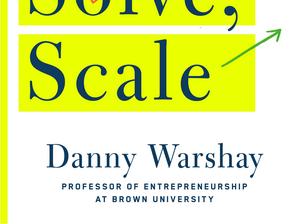
Every month, we recap the biggest tech and startup happenings in Rhode Island. (To get this info every Tuesday, sign up for the Rhode Island Inno Beat newsletter.)
Let’s take a look.
At the start of March, food waste app Flashfood expanded its New England footprint into Rhode Island for the first time, launching programs at Stop & Shop locations. The Canadian-based app had more than 300,000 users last month and announced it had raised more than $12 million in venture capital.
This month also marked the launch of RightHill Ventures, a new fund out of Brown University looking to jump-start new businesses in Rhode Island. RightHill is already supported by a $300,000 grant from the U.S. Economic Development Administration and is accepting offers to mentor founders and invest capital in their companies.
In the wake of increasing cyberattacks from Russia, University of Rhode Island researcher Hui Lin said he was working on a new way to protect our nation’s power grid from cyberattacks — by sending decoy information to would-be hackers. Lin says his concept would feed false information to cybercriminals who try to intrude upon a network that controls energy infrastructure.
The Rhode Island chapter of EforAll launched in early March with a new executive director. Laura M. Guillén will oversee its English and Spanish languages programs in Rhode Island. EforAll also announced its first accelerator program for local businesses. The new program, set to start May 12, is open to Rhode Island residents at no cost. It provides immersive business training, mentorship and access to an extensive professional network.
In mid-March, researchers from RISD and MIT announced they had created a new fabric that produces a signal when bent or mechanically deformed, also known as piezoelectric material. Researchers say this enables fabrics and textiles to convert sound vibrations into electrical signals, similar to how human ears hear.
Rhode Island-based Tape Art announced in late March it would have to cease operations due to its tape running out. Co-founders Leah Smith and Michael Townsend explained they've used the same tape for their art for more than 20 years but now the producer is changing the formula.
Brown University teacher and entrepreneur Danny Warshay this month spoke with RI Inno about his new book “See, Solve, Scale: How Anyone Can Turn an Unsolved Problem Into a Breakthrough Success.” Warshay takes some of the fundamental lessons from his life experiences and the Brown seminar he teaches and distills them for people in small, accessible steps.








